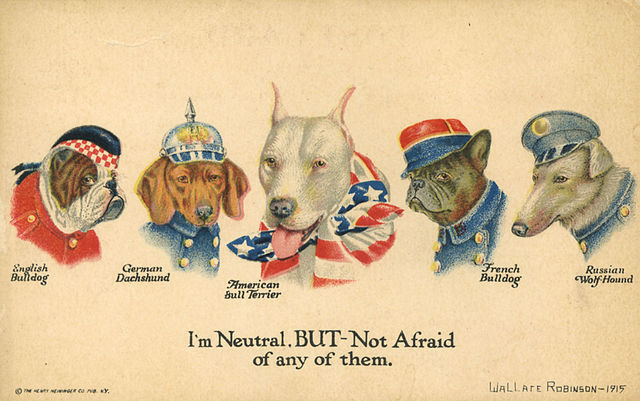The Espionage Act of 1917 is a United States federal law enacted on June 15, 1917, shortly after the United States entered World War I. It has been amended numerous times over the years. It was originally found in Title 50 of the U.S. Code but is now found under Title 18. Specifically, it is 18 U.S.C. ch. 37.
The house of Attorney General Palmer after being bombed by anarchists in 1919; Palmer was not injured, although his housekeeper was
Chelsea Manning, US Army Private First Class convicted in July 2013 on six counts of violating the Espionage Act.
A version of Chafee's "Free Speech in War Times", the work that helped change Justice Holmes' mind
United States in World War I
The United States declared war on the German Empire on April 6, 1917, nearly three years after World War I started. A ceasefire and armistice were declared on November 11, 1918. Before entering the war, the U.S. had remained neutral, though it had been an important supplier to the United Kingdom, France, and the other powers of the Allies of World War I.
Two American soldiers run towards a bunker.
A 1915 political cartoon about the United States neutrality
Anti-German sentiment spiked after the sinking of the Lusitania. This recruiting poster depicts a drowning mother and child.
The Landship Recruit in Union Square in New York City







